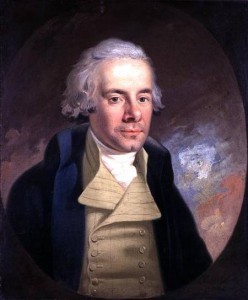It began with a breakfast with one of the pastors of a church that I’m considering having our family attend.
It was a warm, wide-ranging, honest conversation. There was much that he said about his church and how he said it that appealed to me. I eventually mentioned my convictions related to Christianity and God’s world. To my relief, the pastor didn’t disagree with me but said several interesting things. One was that his wife had long desired for her faith life to include God’s earth and that she had had profound spiritual experiences with youth and other believers in the outdoors.
This sounds even more promising, I thought.
The next was not so promising. There had been a person at the church who had been very focused on the same things I am. Because he had been zealous and militant about them, however, the congregation had been turned off by him and by his message. Out of zeal and intolerance, he shut down any effort by the congregation’s members to enter into an open conversation about the topic and to explore all of its implications. Even the pastor’s wife, who would otherwise been energized by the idea of adding this dimensions to the church’s life, ended up being scarred and turned off by the experience.
By this story I believe the pastor was being as open and honest as he could be about what the congregation’s posture was toward the whole range of topics related to how we live in God’s world. I should not, in other words, expect great excitement or interest. Instead I should tread carefully on the topic as it would have some painful memories and emotions associated with it.
I must say that, to his credit, he did not dissuade me from my convictions nor did he suggest that the church would reject any dialog on the topic.
And this is where writing this piece becomes more difficult.
The obvious conclusion is that this is a cautionary tale about the damage to a church family by a believer who comes on too strong and with too much judgmental fervor on any particular topic. A person shouldn’t join a church in order to change it. The church’s traditions and approach to the faith should be honored and respected. And one’s sensitivity to one element of the Christian faith and Christian community life should not be expected to become the primary focus of a church one joins.
Zealotry is antithetical to being a contributing member of a faith community.
But where does a strong commitment to a whole conception of God and the life God wants us to live end and zealotry begin? What are we to do when we are convinced that the integrity and witness of the faith are compromised by how the church is treating (or ignoring) a particular issue?
Let’s consider an extreme example. If you were looking for a church to join in the South in the early 1800s, would you only be looking for a church with the right beliefs and with a warm, friendly congregation? Or would you also be considering what was believed at that church about the compatibility of slavery with God’s purposes? Would you pay attention to whether the church did or did not warmly welcome African Americans to participate as well?
The fruit that a church bears out of its beliefs and convictions says a great deal about those beliefs and convictions.
In the end, I realize that I’m torn between the desire to find a church home for my family and my desire to find a church where a consideration of God’s world is part of its spiritual and cultural fiber.
So does that conviction make me a zealot?
Zealots tend to be oblivious to how intense and disruptive their narrowly focused convictions are. They are not forgiving. They are not practical. They don’t see the whole set of values that need to be brought to bear on any situation.
And Jesus clearly did not make concern for Creation a litmus test on whether a person was worth loving and being with. Jesus did not even explicitly preach that concern for Creation was a fundamental element of following Him. You’d be hard pressed to find many churches throughout history that have given concern for God’s creation much standing.
In the end, however, I don’t think I’m a zealot. I do question myself. I respect the fact that there are many virtues and priorities that guide the Christian life and that we, as individuals and churches, must try to find paths that get everything as right as possible which is a difficult task. I don’t expect any church, all of which are composed of imperfect people like me, to get everything just right for my tastes or even to be in full accord with all that God expects. I am open to discussions about my convictions.
Nevertheless, I am convinced that a whole Christian faith includes concern and consideration for God’s world.
So what do I practically do in terms of finding a church? Here are the choices I see:
1. Keep looking until I find a church where there is a consideration of Creation and where key elements of the faith are also taught.
2. Look for a good, welcoming church that fits our family and focuses on other key elements of the Christian faith. If it is considerate of Creation in even small ways, that’s a bonus. If it doesn’t, I should just accept the community as it is while being ready to encourage the church (to the degree it’s willing), to gradually integrate its faith life with compassion for God’s earth over time.
3. Team with others to start a new church or ministry which believes, among many core things, that its members should bear good fruit in their lives from their faith and that the good fruit should include kindness and mercy toward God’s world.
The first option, I fear, would essentially mean that my family would not be going to church or would have to travel very far each Sunday. I’ve visited the websites for many of the churches in the area over the past five years and it’s nearly impossible to find a church where Creation is even on the radar screen in terms of how the church defines its beliefs and what matters.
The second option is probably the most realistic in terms of finding a church fairly soon and in fairly close proximity to home. I’m sensitive to the fact that if everyone expected to find a church that was perfect and that lined up exactly with each person’s finest nuance of beliefs and principles we’d end up with millions of one-person churches. Some effort must be made to focus on the essentials of what a Christian church should be. One of those essential points is worshipping God with joy and awe and gratitude for God’s grace through Jesus Christ.
The reality is that all of the weight of centuries of unconcern for Creation expresses itself in the theology and messages and culture of today’s churches. And what’s more, the culture of our civilization exerts a strong gravitational pull upon our churches. That culture assumes that nature is strictly there for our purposes and must essentially accommodate itself to us. That dominant culture deems it subversive that people (much less communities and governments) would voluntarily moderate their desires and their convenience to allow God’s earth to flourish. In light of those factors, the odds of finding a church with a whole faith are very, very small.
The best that can be hoped for is to help move a church incrementally towards a concern for Creation in ways that make sense to the church community. The zealot can, as the pastor’s story revealed, do more damage than good to the church and to the righteousness that she wants to inspire others to pursue.
The problem I have with the second option is this: after more than a decade of meditation and learning and prayer I cannot escape my conviction that a whole faith inspires a conversion of our spirit into compassion and hunger for what is right in every aspect of our lives. Not showing compassion and not trying to doing what is right and just for God’s Creation actually impairs and taints the rest of all that we try to do.
Life is short. Time is short. Time is against the natural systems of God’s earth in the face of what humanity is doing. People are being harmed by what is done to God’s earth. Living creatures are being cruelly harmed and destroyed on an epic scale by what is being done to God’s earth. We are dishonoring God by failing to be the shepherd-like stewards of what God has entrusted to us.
So that leads me, reluctantly, to look hard at the third option.
A radical option. It also sounds challenging on a multitude of levels. Could a church or ministry like that be created without losing other essentials of the faith along the way? And what would my children’s experience be? Would I be in any way competent to do so? Could I handle the criticism that would come our way? Would anyone actually show up???
I need to wrestle more with this. I feel untethered, unrooted, and hungry for community with other followers of God. But I see the world in a different way and am unwilling to go along to get along. Perhaps this is how the prophets felt? On the other hand, perhaps there are more nuanced options and opportunities I haven’t considered?
I know I must decide and move forward. I’ll share the journey here with you and welcome your wisdom.






